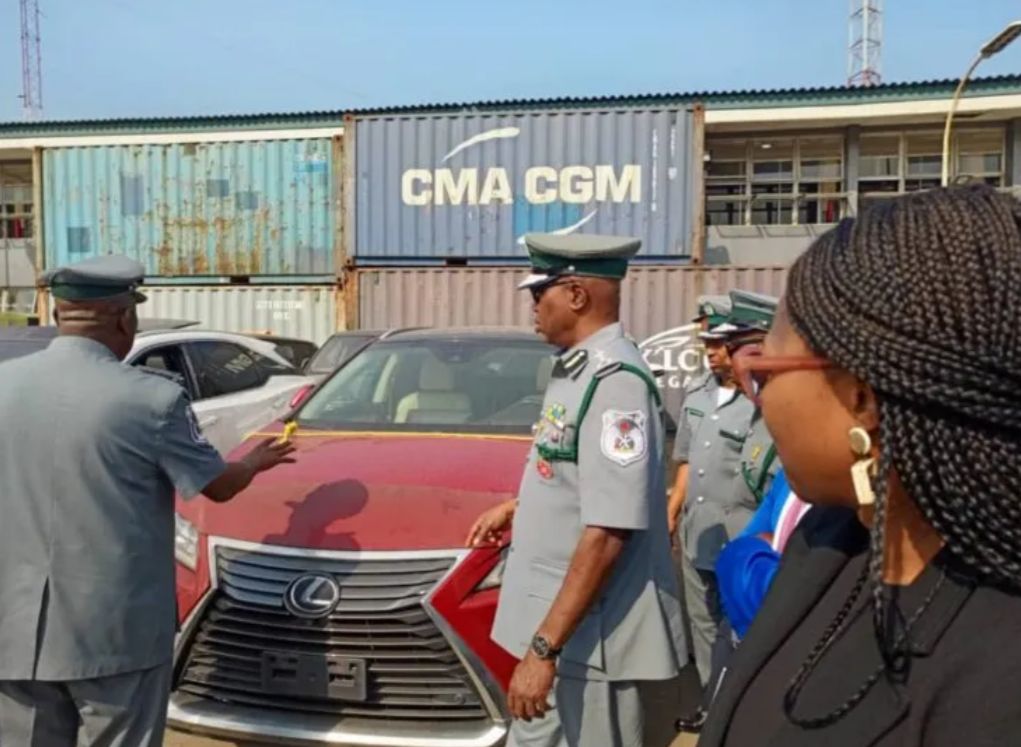

The Comptroller General of Customs (CGC), Wale Adeniyi, has handed over 21 exotic cars valued at over N8.1 billion to the Canadian government.
The move follows revelations by the International Police (INTERPOL) identifying West African countries, including Nigeria, as hubs for exotic vehicles stolen from Canada, the United States, and Europe.
The recovered vehicles include luxury brands such as Rolls Royce, Lamborghini Huracan, Mercedes-AMG, and Range Rover. Adeniyi disclosed that these vehicles were stolen abroad by syndicates and shipped into Nigeria using falsified documentation.
“According to INTERPOL reports, West Africa has emerged as a notable destination hub in the global stolen vehicle trade network, which extends from Europe and North America to as far as South America and Australia. This challenge is particularly acute in Nigeria,” Adeniyi stated.
The recovery was made possible through “Operation Hot Wheel,” a collaborative initiative involving the Nigeria Customs Service, the Economic and Financial Crimes Commission (EFCC), and the Canadian government. Adeniyi confirmed that all 21 vehicles were traced and recovered with support from the Canadian authorities and EFCC.
Speaking at the official handover of the vehicles, Adeniyi said, “The growing incidence of stolen vehicles finding their way into our region has become a matter of serious concern, as it not only undermines our legitimate automotive market but also strains our security infrastructure. Recent intelligence from international law enforcement agencies further confirms that our region has become a preferred destination for internationally stolen vehicles, a trend that not only tarnishes Nigeria’s international image but also impacts our economy through substantial revenue losses and increased security spending.
The economic implications of this criminal enterprise are far-reaching and deeply concerning. Beyond damaging our legitimate automotive trade sector and international business relationships, it undermines President Tinubu’s economic reform agenda that aims to position Nigeria as a trusted hub for international commerce. The Service is forced to divert substantial resources towards enhanced border management and rigorous verification processes – resources that should ideally be channelled towards trade facilitation initiatives and economic growth programs. This criminal activity not only strains our operational capacity but also threatens the government’s efforts to attract foreign investment and establish Nigeria as a reliable partner in global trade.”
Adeniyi explained that Operation Hot Wheel was launched as a multiagency enforcement initiative to disrupt the flow of stolen vehicles into Nigeria through its ports and borders. “The operation’s primary objectives included identifying and intercepting stolen vehicles, dismantling trafficking networks, and strengthening international cooperation in combating transnational vehicle theft. This multiagency approach was designed to leverage the unique capabilities and jurisdictional advantages of each participating organization,” he said.
Through enhanced intelligence gathering and strategic resource deployment, Nigeria Customs officers intensified surveillance operations with minimal disruption to legitimate trade. Adeniyi highlighted a notable interception at Area II Command, Onne Port, where officers uncovered a container declared as carrying used vehicles and auto spare parts. Upon examination, the container was found to hold three undeclared 2021 Toyota Highlander vehicles, two of which were confirmed stolen from Canada. Other recoveries included a Mercedes-Benz G550 and a Range Rover Sport intercepted in Lagos, a Mercedes-AMG GT and a Lamborghini Huracan, a Rolls Royce and a Lamborghini 2019 Model recovered in Victoria Island, and two Range Rovers (2023 and 2018 Models) intercepted along Lekki.
“These recoveries highlight both the sophistication of transnational vehicle theft syndicates and their evolving concealment methods,” Adeniyi noted. He warned that criminals now employ tactics such as false declarations and containerized shipments to evade detection, exposing the need for continued vigilance and enhanced border security.





